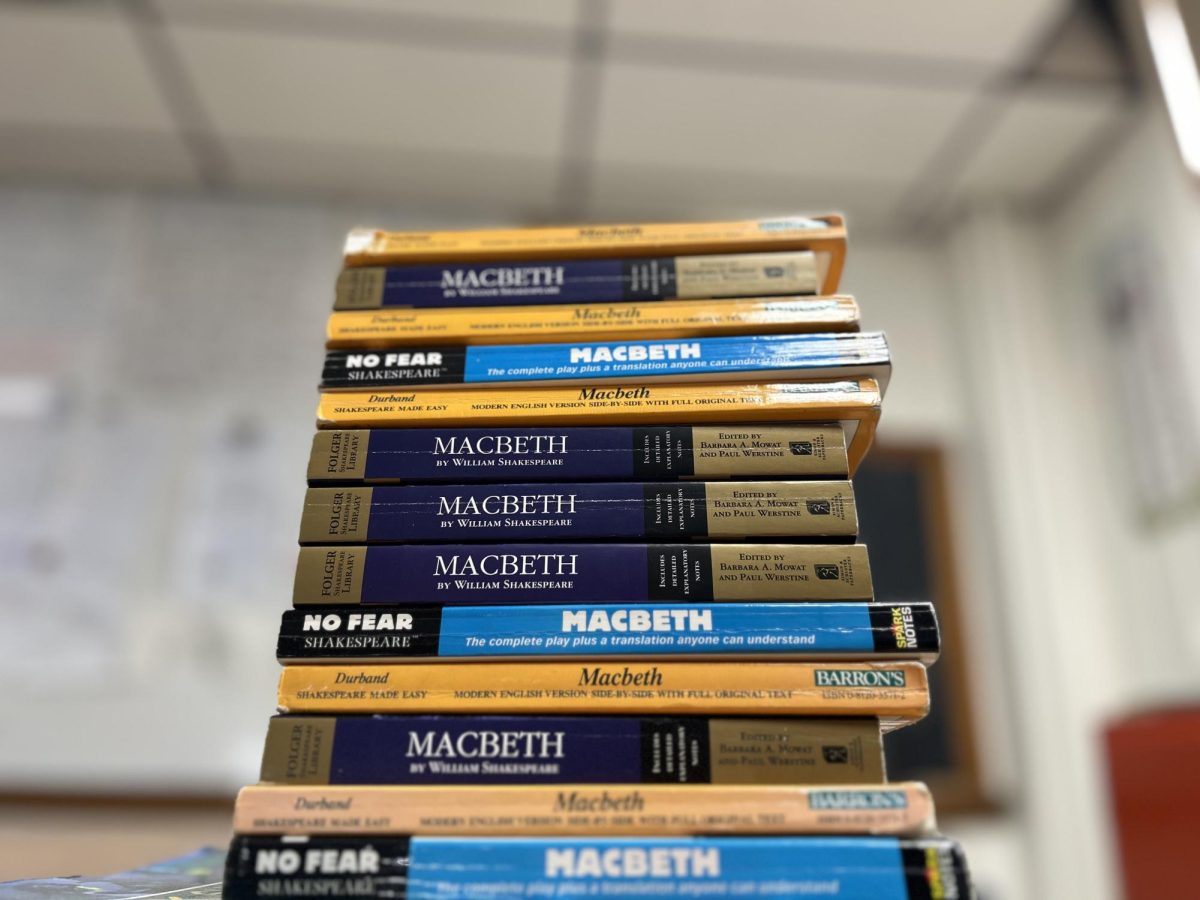English class is a staple of high school education. English classes teach you to read, to write, to absorb or form ideas, and to think critically about the ideas of others. They teach you some of the communication abilities necessary to be a functioning adult in this modern day world. There are many different ways for English teachers to deliver this knowledge, and therefore what a student does in their particular English class will vary from teacher to teacher. But there’s one ever present factor in almost every English class throughout America: Shakespeare. At one point or another throughout their education, most kids will be forced to undertake literary analysis of the world’s most “overplayed” playwright. But is this the way it should be?
I don’t claim to be an expert on William Shakespeare, or an expert on English class. I’ll leave that to the Ms. Nordstroms and Professor So-and Sos of the world. But I do consider myself an expert on the student experience of both Shakespeare and English class– and from that perspective, Shakespeare is often overemphasized in today’s curriculum, to the point of redundancy bordering on uselessness.
I’ve had Shakespeare shoved onto my desk a number of times over the years, with no choice but to do my best to fully appreciate his supposed grandeur and mystically unparalleled, unprecedented, never-replicated talent. Or so I’ve been told.
He is undeniably talented. Shakespeare did things for literature and the English language as a whole that have lasting positive effects even to this day. His themes and stories are still replicated or used for inspiration in modern media and prose. But numerous other historical figures had massive lasting impacts on literature such as this, although none of them stand in as big a spotlight as Shakespeare. Homer, Shikibu, Chaucer, and Cervantes all had profound impacts on literature and shifted the art form in their own ways, similar to Shakespeare. Curiously, I have never spent more than half a class period discussing any of them in even my history classes, let alone English class.
I think Shakespeare is good. Really good. But I think that the time spent studying a person or topic in a class in high school should be proportional to its importance and the positive effect that learning the information will have on the lives of the students learning it. With the amount of emphasis placed on Shakespeare and the uniformity with which his works are taught across the country, one would assume that the second a student cracked open a work of his, their lives would be instantly and forever changed, a golden light shining up from its pages and illuminating their “blessed” face like the scene from Pulp Fiction. Unfortunately I can confirm this is not the case, and therefore, the amount of time and effort spent on learning Shakespeare should be decreased.
I would argue that one of the only tangible things reading Shakespeare does for students is give them the ability to recognize Shakespeare in modern work. Before reading Shakespeare, I could read a book and understand all of the underlying themes. After reading Shakespeare, I could still read a book and understand all of the underlying themes, but now I could also say “I think this is a reference to Shakespeare!” Overall, my understanding of the text is unchanged.
I think English classes should utilize contemporary texts and forms of literature as opposed to the same however-many plays from 400 years ago. Say what you will about the idea that Shakespeare’s themes still apply today, but the bottom line is that modern life is drastically different from that in sixteenth century England. Students will objectively be able to relate better to contemporary texts, making them more inclined to engage wholeheartedly with them and get the most out of them.
Shakespeare had his time. He made his contributions. But he hasn’t been contemporary in centuries. No new ground is being broken by repetitively covering his works. When writing my most recent English essay on Macbeth, I actually found it hard to come up with a unique line of reasoning without feeling like I was almost directly copying either someone from the internet, my teacher, or one of my classmates. And I think that’s because Shakespeare is played out. Presumably, there’s a finite number of things that can be said about a particular work. And while that number is vast and probably incalculable, it’s still finite. Maybe, citing my issue of perceived originality with my essay, we as a global culture have reached the point where we’re just running out of things to say about Shakespeare. That alone is reason to move on to something new.
I think Shakespeare’s over-glorification has caused society to put him on a pedestal. We deify him with a “holier-than-thou” justification, unjustly saying he is objectively the best and we will never see another writer like him. But if any other talented writer from history was given as big of a spotlight as Shakespeare, would we once again discover the hidden masterpieces people say are in Shakespeare’s plays? I think that part of the reason Shakespeare’s work is so celebrated is because it has been analyzed to the point of immortality. Speaking exclusively of a class of talented writers, if you look hard enough, you will find the underlying themes and masterful figurative language that Shakespeare is so revered for. I don’t think he’s above all other writers: I think he has been placed above all other writers.
The over-glorification of Shakespeare in English classes is so ingrained into the American high school curriculum that it will be no easy task to progress from it. One would be hard pressed to find another topic so widely taught in English class as Shakespeare, but I truly believe that students will both enjoy English class more and get more actual applicable-to-life knowledge out of it if Shakespeare is phased out. Maybe not completely taken out of the curriculum, but to a major degree.
It’s time to move on. I speak to English teachers everywhere similar to the way that a consoling friend speaks to the victim of a damaging breakup: move on from him. You do not need him. You will find someone better.











